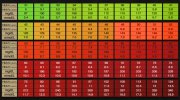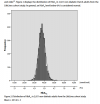diabeticfighter23
Newbie
- Messages
- 2
- Type of diabetes
- Prediabetes
- Treatment type
- Diet only
HI all,
I am 32 years old male who has been prediabetic past 5 years (5.8%) Last year before Christmas, I did a blood test resulting in 107 fasting and 6.4% A1c level.
I was shocked but I had bmi of 29 so I knew it's time to lose weight.
I started to get strict with my diet and lost 11 kgs in 3 months. In March this year, I got the result of fasting sugar of 91 and a 6.0% A1c level.
I was quite disappointed how high my A1c level was, hoping I was no longer in diabetic risk.
Doctor asked me to test again in 6 months, which I did, and this time I lost 4 kgs more so in total lost 15 kgs since December. I also did more exercise after meal.
Still, my fasting glucose was 95, and A1c level 6.0%. Now I am starting to think whether I am already diabetic and perhaps that is why my a1c is still high.
do you guys think I should take oral glucose tolerance test to know whether i am diabetic type 2 or not? Or does my blood test results are enough?
I am now in a normal weight BMI so I thought this should be enough to reverse it... or is it too late?
If anyone has similar readings or happenings and did oral test and got diagnosed as diabetes please share your story.
I am currently considering oral glucose tolerance test but I am not sure if it will be any different.
My biggest frustration is I am no longer obese and I don't eat extremely unhelathy since I am able to maintain my current weight and I do exercise more. So why am I not fully reversed after 9 months...? That's why I start to think whether I am already diabetic maybe.
I am 32 years old male who has been prediabetic past 5 years (5.8%) Last year before Christmas, I did a blood test resulting in 107 fasting and 6.4% A1c level.
I was shocked but I had bmi of 29 so I knew it's time to lose weight.
I started to get strict with my diet and lost 11 kgs in 3 months. In March this year, I got the result of fasting sugar of 91 and a 6.0% A1c level.
I was quite disappointed how high my A1c level was, hoping I was no longer in diabetic risk.
Doctor asked me to test again in 6 months, which I did, and this time I lost 4 kgs more so in total lost 15 kgs since December. I also did more exercise after meal.
Still, my fasting glucose was 95, and A1c level 6.0%. Now I am starting to think whether I am already diabetic and perhaps that is why my a1c is still high.
do you guys think I should take oral glucose tolerance test to know whether i am diabetic type 2 or not? Or does my blood test results are enough?
I am now in a normal weight BMI so I thought this should be enough to reverse it... or is it too late?
If anyone has similar readings or happenings and did oral test and got diagnosed as diabetes please share your story.
I am currently considering oral glucose tolerance test but I am not sure if it will be any different.
My biggest frustration is I am no longer obese and I don't eat extremely unhelathy since I am able to maintain my current weight and I do exercise more. So why am I not fully reversed after 9 months...? That's why I start to think whether I am already diabetic maybe.


